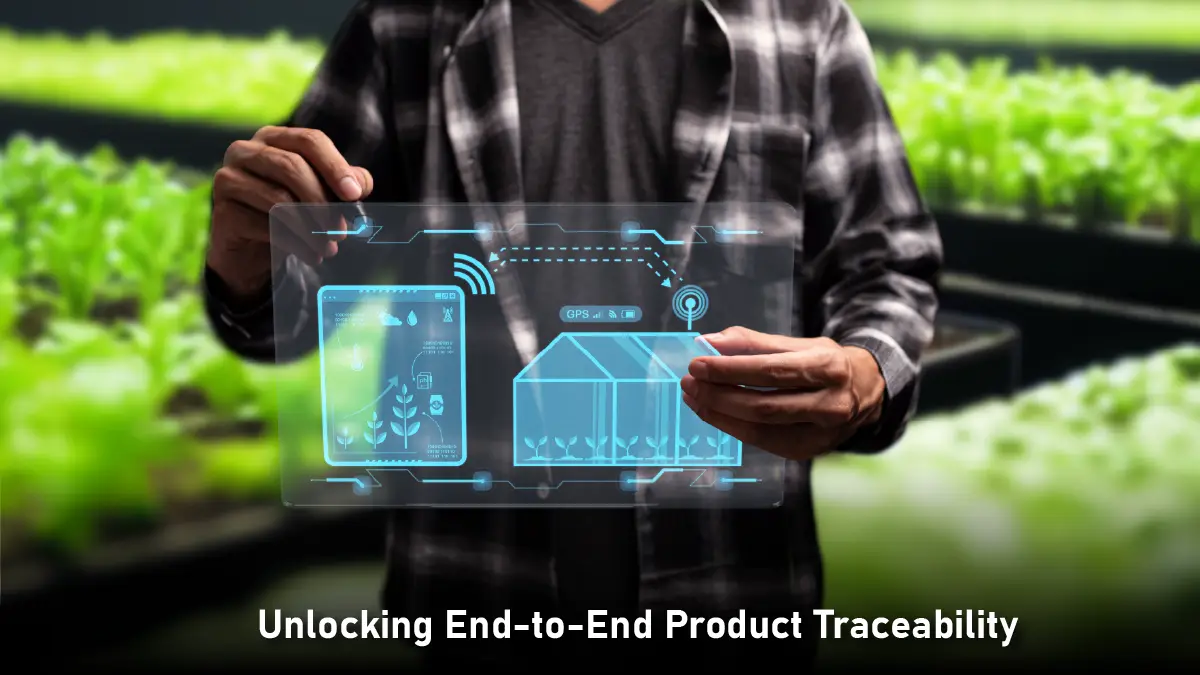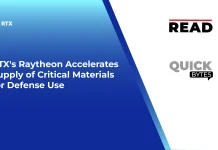The global supply chain and logistics sector is a strong network. It connects systems, people, and processes. The industry has faced inefficiencies and poor communication for years. These issues lead to delays, increased costs, and a loss of trust. Blockchain technology steps in. This digital ledger system revolutionizes how goods move from raw materials to consumers. Blockchain connectivity transforms supply chains, enabling secure, clear, and permanent data sharing. This makes supply chains agile, responsible, and future-ready. Blockchain technology is changing the game. Leaders gain valuable insights on its ability to reshape global trade.
Unlocking End-to-End Product Traceability

Blockchain technology unlocks end-to-end product traceability. Consumers demand to know where their products come from. Blockchain provides a clear digital path from farm to shelf. Walmart and IBM’s Food Trust network, for example, reduces the time to trace a food item from seven days to 2.2 seconds. Traditional supply chains use separate databases. This makes it hard to track a product’s journey accurately. Blockchain’s distributed ledger records every transaction, transfer, or change instantly. Authorized participants can access this information anytime.
Take the food industry, for example. Walmart and IBM Food Trust work together to track produce around the world. When contamination happens, blockchain cuts investigation times from days to seconds. It quickly identifies the affected batches. Similarly, luxury brands deploy blockchain to combat counterfeit goods. Customers can check a handbag’s authenticity by scanning QR codes. They can see its full history, from artisan workshops to retail stores.
Also Read: How Genomics is Reshaping Personalized Healthcare
Traceability builds consumer trust. It also helps comply with rules like the U.S. FDA’s Food Safety Modernization Act. Blockchain has changed how companies handle audit trails. Now, they don’t have to gather them by hand. Instead, blockchain automates this task. It helps companies follow ethical and environmental standards.
Strengthening Compliance and Audit Processes
Regulatory compliance is a constant challenge in global trade. This is especially true in industries like pharmaceuticals and automotive manufacturing. Disorganized paperwork can lead to human errors. This can slow reporting. As a result, companies may face costly fines or shutdowns. Blockchain’s unchangeable records help with compliance. They make a secure audit trail. Regulators and auditors can check it in real time.
Maersk, the biggest shipping company in the world, uses TradeLens. This blockchain platform, made with IBM, helps digitize shipping documents. Customs authorities quickly verify cargo details, cutting clearance times and stopping fraud. Merck uses blockchain to track drug shipments in the pharmaceutical industry. This innovation protects temperature-sensitive vaccines during transport. It also supports sustainability efforts, leading to greener practices. Mining companies proudly show their conflict-free minerals. They follow the OECD Due Diligence Guidance. Automating compliance reduces risks and builds trust with stakeholders.
Combating Counterfeit Goods
Counterfeiting costs the global economy more than US$ 500 billion each year. It harms brand trust and puts consumer safety at risk. Blockchain authentication disrupts this illegal trade at every stage. De Beers’ Tracr™ platform uses blockchain. This technology ensures all its diamonds are authentic. It ensures that every diamond’s path, from source to store, is tracked and checked. Blockchain is a game-changer. It authenticates products and helps stop illegal trade. Each item has a unique digital ID, securely linked to its blockchain record, be it an NFC chip or an RFID tag. In the automotive world, BMW carefully checks valuable parts. They make sure that only genuine components are used in repairs. The aviation sector, too, adopts blockchain, tracing aircraft parts like a hawk. This vigilance halts unapproved substitutes, maintaining safety integrity. The art world benefits too. Platforms like Verisart certify artwork origins. This protects buyers from forgeries. Brands use technology to stop counterfeiting. This protects their revenue and builds strong customer loyalty. Consumers feel secure because they know their purchases are real and ethically sourced.
Streamlining Payments and Reducing Disputes

Financial friction represents a stubborn bottleneck in supply chains. Smart contracts change cross-border payments. They remove intermediaries, wait times, and hidden fees. This creates a smooth experience. They execute automatically when certain conditions are met. This speeds up payments and reduces disputes.
Consider a coffee exporter in Colombia shipping beans to a European roaster. Traditional letters of credit need banks to check delivery before they release funds. This process can take weeks. Blockchain allows IoT sensors on shipping containers to pay automatically when goods arrive at the right ports. This efficiency is critical for small suppliers lacking liquidity.
De Beers’ Tracr platform exemplifies this innovation. Blockchain illuminates the journey of diamonds, from mine to market. It champions ethical sourcing while seamlessly automating payments to miners and distributors. This shining system not only slashes administrative burdens but also cultivates trust. No more doubt lingers over the fairness of contracts.
Optimizing Inventory and Demand Forecasting
Excess inventory and stockouts choke supply chains, creating costly chaos. Often, this misfortune stems from poor demand forecasts and sluggish communication. Enter blockchain, a clear guide. It unites data from suppliers, manufacturers, and retailers. This creates one trustworthy source. This synthesis enhances predictive analytics and enables swift, real-time adjustments. This synthesis greatly enhances predictive analytics. It enables quick, real-time adjustments. Honeywell teamed up with iTRACE Technologies to add blockchain for product verification. This partnership boosts inventory management and improves traceability in their supply chain. Partners can align their workflows by securely sharing production schedules and inventory levels.
This reduces delays. In retail, companies such as Unilever use blockchain data. They predict demand spikes in different regions. This helps them optimize warehouse distribution before busy seasons.
This connectivity also mitigates bullwhip effects; small demand fluctuations that amplify upstream. When everyone shares the same data, procurement decisions turn into team efforts. They become more than just quick fixes.
The Path Forward is Collaboration and Integration
While blockchain’s potential is undeniable, its success hinges on industry-wide collaboration. Isolated efforts provide small gains. Real change needs ecosystems where competitors work together to create shared platforms. The Global Shipping Business Network is a blockchain group with COSCO and SAP. It shows how things are changing. Now, paperwork is easier for freight carriers competing with each other.
Leaders must also address scalability and interoperability challenges. Blockchain networks need to work with old systems like ERP and IoT devices. This helps keep data flowing smoothly. Partnering with tech providers like Microsoft Azure for blockchain and Oracle for supply chain solutions makes this transition easier.
A New Era of Trust and Efficiency
Blockchain connectivity is not just a future idea. It’s a powerful tool for making supply chains stronger today. The technology improves traceability and makes payments automatic. It removes old inefficiencies and adds transparency and speed.
Leaders have a clear call to action:
- Pilot blockchain projects.
- Build alliances across industries.
- Teach teams about its strategic value.
As global trade grows increasingly complex, blockchain offers a compass to navigate uncertainty. Companies that embrace this change will thrive. They can make supply chains a key advantage. This helps boost growth and customer loyalty. The future of logistics is decentralized and transparent. It’s also built on trust. This new system is being created today.



